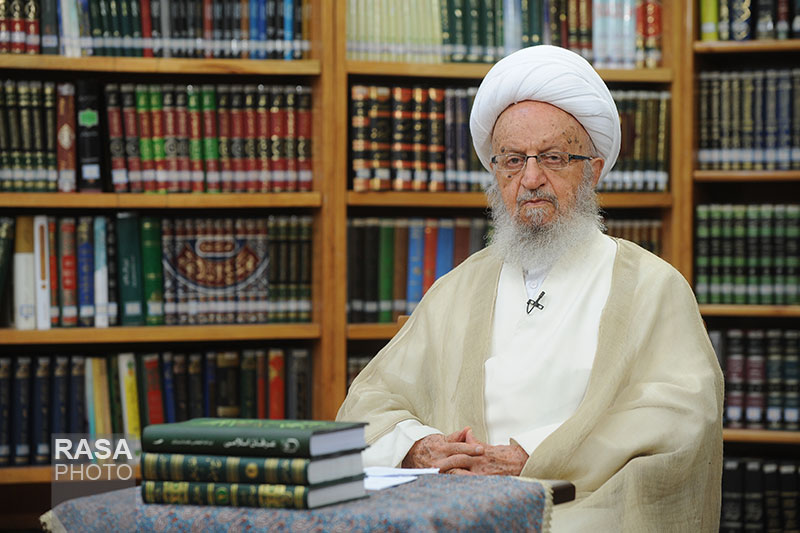
RNA – Speaking on an episode of the television show “Fountain of Knowledge,” which has been broadcast on Iranian television during the holy month of Ramadhan, Grand Ayatollah Naser Makarem-Shirazi referred to the supplication “Makarim al-Akhlaq” [Noble Moral Traits] in Sahifah al-Sajadiyyah [Scripture of Sajjad] and said the issue of population growth is very important.
The revered source of emulation said, “In the world today, the spirit of materialism is dominant on one hand and on the other hand, seeking prosperity goes hand in hand so people are calling for fewer children.”
He added that the domineering powers have taken advantage of this opportunity and for this reason, the Muslim population has declined and the slogan of “Fewer Children, A Better Life” has been raised among Muslims.
“Even this issue has lead to actions such if an individual had one child, he would be sterilized so that he wouldn’t have any more children. We have headed towards this manner and the Muslim population is going into decline,” he said.
Ayatollah Makarem-Shirazi said that this method is contrary to the teachings of the Quran and Islam and said, “The people have the principle voice in society. Mines, farms and factories are good but the principle voice that the people have is that they are educated and establish organizations. For this reason, the population must increase rather than factories, fields and mines.”
The teacher in the Islamic Seminary of Qom added that for a long time, the enemies have encouraged having only one-child there but this goes against the Quranic verse 12 of Surah Nuh, where God tells the Prophet Noah to tell his people to believe and repent of their sins so that God will send down abundant rains and grant then many children, gardens and property and in this regard, God is saying that having many children is full of blessings.
His Eminence said that many children are a blessing rather than a burden and said, “Verse 72 of Surah al-Nahl says, ‘God made for you mates from your own selves and appointed for you children and grandchildren from your mates and We provided you with all the good things’ – meaning alongside sustenance, the blessings of children and grandchildren are explained.”
Ayatollah Makarem-Shirazi said, “Children are an abundant blessing – the Prophet Muhammad said to Muslims, “Marry and have children and I permit you to have increase the number of your children.”
He added, “Despite that fact that the Quranic verses and traditions stress upon this, society is under the influence of the slogan of ‘have fewer children’ and we have seen that we are heading towards a population decline.”
The source of emulation said if our population decreases, our power will be also reduced. In some countries which are suffering from low population, there is a great reward for population growth have because they know that children and society have the first word.
He pointed to the benefits of having a pious child and noted, “We have narrations which say that when a man dies, his record of his actions is closed and he has been separated from this world but if we have righteous children who performs good acts, it will also be written in his parent’s record. Thus, if a good generation is nurtured by a parent, the blessings of that child’s good acts return to his parents in purgatory.”
Ayatollah Makarem-Shirazi insisted that everyone must abandon the blind imitation of the West and have multiple children so that the population of the country increases and the power and strength of the people leads to the power and strength of the country and Islamic system.
112/930/605